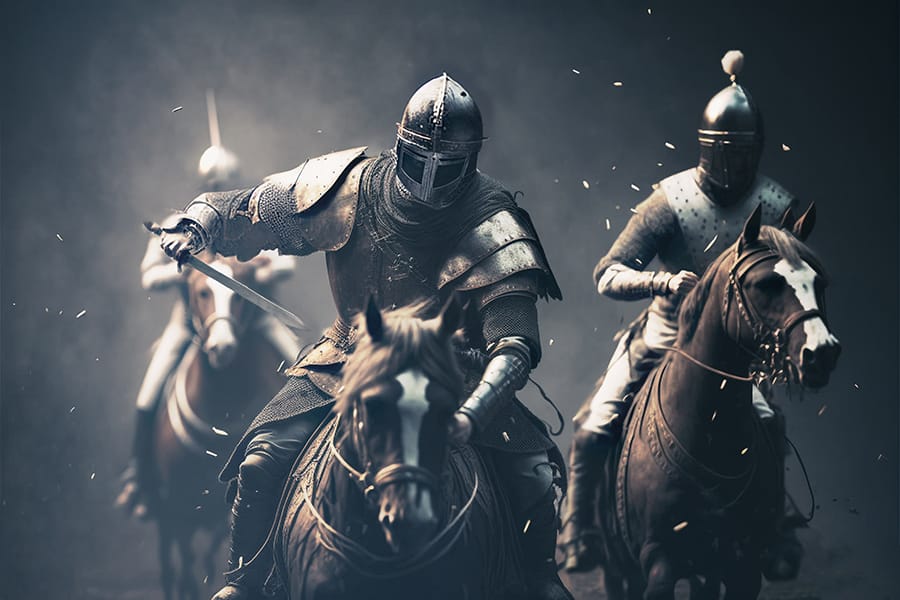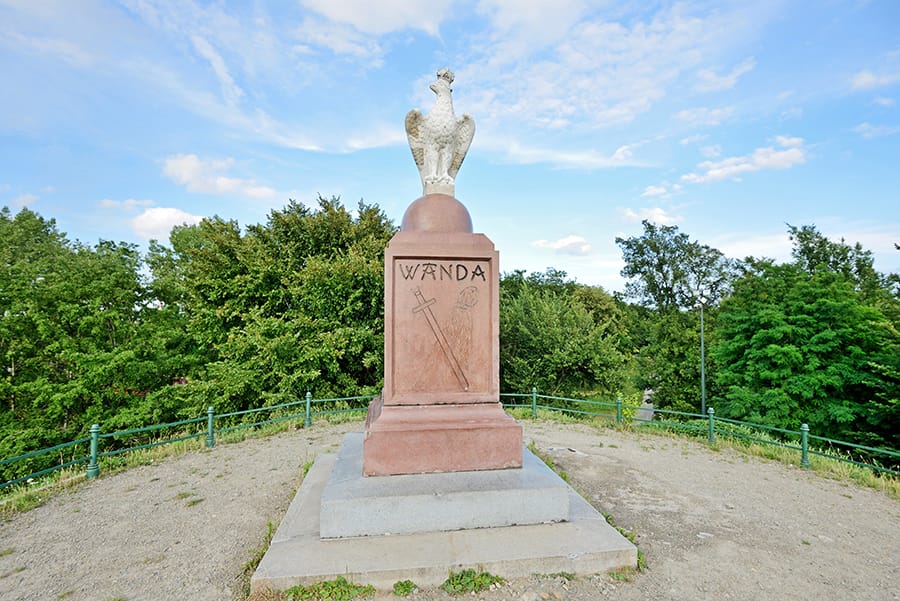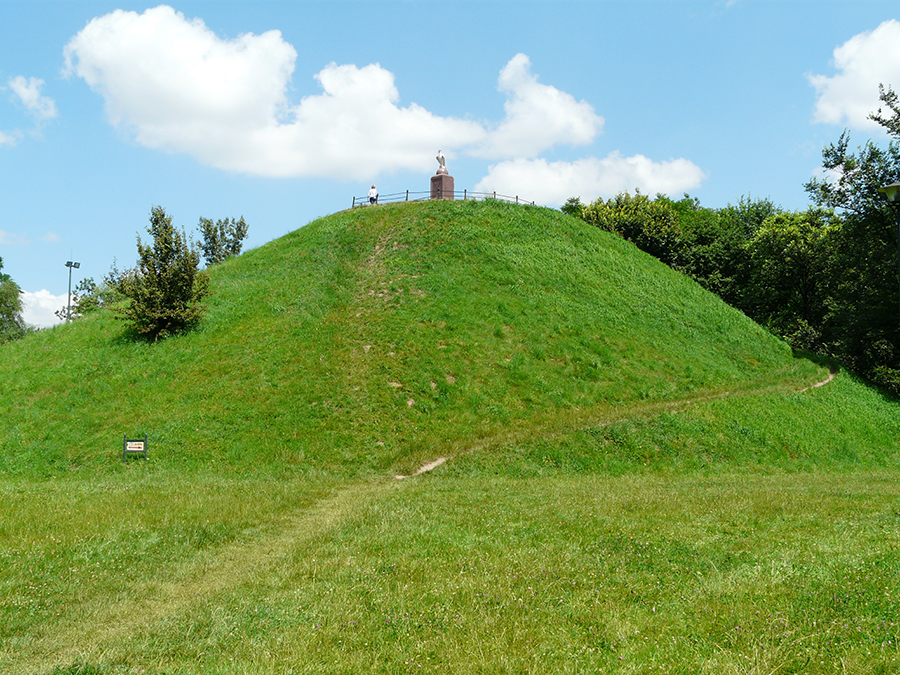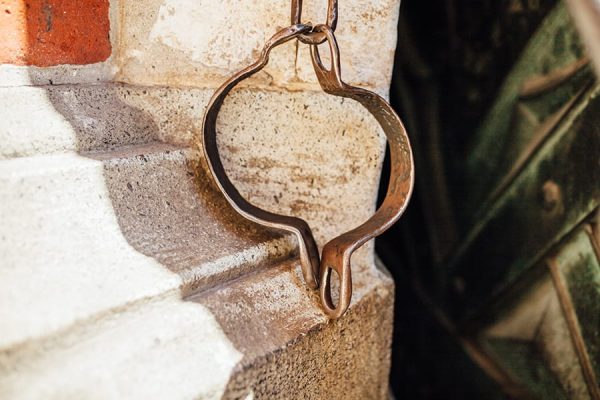The legend of Wanda, the legendary ruler of Cracow, is one of the best known tales from Polish folklore. However, not everyone knows that there are several versions of this tale, which differ somewhat in detail. Let us now take a look at one variant of the legend, inspired by the description in the chronicle by Wincenty Kadłubek.
Legend of Wanda according to Wincenty Kadlubek
A long, long time ago, when the beginnings of the state were taking shape in the Polish lands, Cracow was ruled by a prince named Krak. He was a just and wise ruler, adored by his people. He had a daughter, Wanda, and two sons – an older one, named Krak II, and a younger one, called Lech.
Krak II was renowned for his calmness and prudence, while Lech was full of jealousy and ambition. When Duke Krak died, the throne, according to tradition, fell to his elder son, Cracow II. Unfortunately, over time, jealousy and lust for power poisoned the mind of his younger brother, Lech. During a hunt, when the brothers were far away from other people, Lech attacked his elder brother Cracow II and killed him. To hide his crime, he chopped his body into pieces and buried it in the sand.
However, this crime did not remain a secret. The people of Krakow were shocked, and Prince Lech, knowing that he could not count on the support of the people after such a heinous act, decided to flee the city.
The Cracovians were in despair. They had lost their beloved prince, his successor had been murdered and his only brother had fled as an assassin. As a result, Cracow was left without a ruler. This situation could not last long, however, as someone had to lead this proud city. It took a long time to decide which of the mighty to choose, but on the advice of the wise men, it was decided to make a broader choice, not limiting themselves to men only. Then it dawned on everyone – after all, the beloved Duke Cracow also had a beautiful and wise daughter, Wanda. She was quickly offered to take the throne and rule the country. Wanda accepted this responsibility with courage and determination.
Wanda was an exceptional princess. Not only beautiful, but also wise and courageous. Loved by her people, she ruled justly and with prudence. She fought at the head of her people in numerous battles, defending her country from enemies. She settled disputes between the people, ensuring harmony and unity in the country. She constantly worked for the happiness and safety of her people.
One day, news reached Cracow of a dangerous enemy – the German prince Rytygier (this is the prince’s name we can find in Jan Długosz’s chronicle). The hostile prince was determined to conquer the lands deprived of a male ruler. He sent his envoys to Cracow, threatening war and destruction if Wanda did not agree to give up the city voluntarily.
Proud Wanda did not want to give her people a foreign lord. She knew she had to fight to defend her people. She remembered the words of her late father, Prince Krakus, who had always taught her courage and wisdom.
Wanda decided to refuse to give up her lands to Rytygier and to prepare the kingdom for defence. She convened a meeting of her best advisors, among whom were also her father’s advisors. Together they drew up a plan for the defence of Cracow against the approaching enemy.
Wanda realised that Cracow’s strength lay in the unity of the people. For days she announced a mobilisation, calling on the people to unite and face the threat. The people listened to their wise princess and united to defend their city.

When Rytygier decided to move to attack, he did not expect what would happen. Facing his troops was an army led by the beautiful and brave Wanda. The German warriors were stunned, both charmed by Wanda’s majesty and confused by the fact that the army was led by a beautiful woman. As a result, they refused to fight and decided to abandon the attack.
Rytygier, seeing that his orders were having no effect as his troops refused to fight Wanda, decided to commit suicide.
Wanda and her people celebrated the bloodless victory, and the princess was hailed as a heroine and defender of her kingdom.
Wanda continued her wise and just rule, and her reputation as a great ruler spread beyond the borders of Poland. She won the respect of other kingdoms and nations, and her name became fixed in people’s memories as a symbol of wisdom, courage and power exercised with love for her people.
The legend of Wanda has survived the centuries and is still told today.
The legend of Wanda as told by Jan Długosz
In one of the better-known versions of the legend of Wanda, which we owe to the chronicler Jan Długosz, the story takes a slightly different form. According to this version, Rytygier, a German prince, not only wanted to conquer Cracow, but also to marry the beautiful Wanda, daughter of Krak. Rytygier was famous for his bravery and courage, and his militaristic strength was a threat to Cracow.
The beginning of this version of the legend coincides with the version described by Wincenty Kadłubek: Wanda, the young princess, was not only beautiful, but also wise and just. After the death of her father, Krak, Wanda was elected ruler of Cracow. Loved by the people, she ruled wisely and justly, looking after the welfare of her country and people.
However, the tranquillity of her lands was threatened when matchmakers from Rytygier arrived in the city. The German prince wanted to marry Wanda and gain power over Cracow. He even threatened war if his declarations were rejected. Wanda faced a difficult choice – marry the German prince Rytygier and agree to foreign rule in Cracow, or face him and defend the independence of her country.
Wanda decided to reject Rytygier’s proposal. Faced with this, the German prince fulfilled his threats, declared war on her and set off with his army towards Cracow. At this time, the Kraków princess and her entourage decided not only to begin preparations for the defence of the city, but also to ask the pagan gods to intervene and help her chase away the German invaders. During the rituals, she promised to offer them her life in exchange for the protection of her beloved city and her subjects.
The gods listened to her request – when the enemy army confronted Cracow’s defenders – the German warriors, upon seeing Wanda, were intimidated by her beauty and abandoned their attack on the city. Wanda kept her word and fulfilled her promise to the gods. After celebrating her victory, the princess made her way to a hill above the Vistula and there, fully aware of her sacrifice, she threw herself into the river, giving her life in exchange for saving the country and the people.
The citizens of Cracow were distraught, but at the same time full of gratitude for their brave princess. In her honour, they erected a mound – a grave – in which they buried Wanda’s body.
Mound of Wanda in Cracow
It is with this version of the legend, which was quoted by the chronicler Jan Długosz, that her legendary burial place – the Mound of Wanda – is connected. As early as the 13th century, the first records appear of the village of Mogiła (now part of Cracow), whose name undoubtedly derives from a mound-like grave raised by the people.
For centuries, the Mound of Wanda, as the burial place of the legendary princess, attracted both pilgrims and tourists who wanted to commemorate her and admire this unusual place. The hill on which the mound is located also offers a beautiful view of the surrounding area, adding to the charm of this historic site.


You can find the location of Wanda Mound on the map below:







